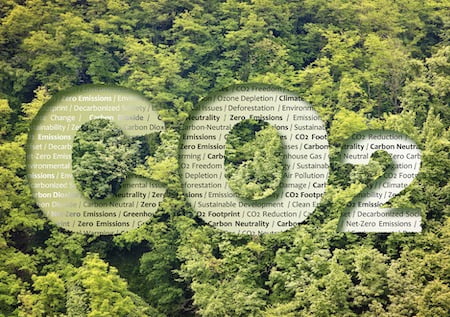The consultation outcome on addressing carbon leakage risk to support decarbonisation has been released by the Department for Energy Security and Net Zero and HM Treasury.
Crucially, the government intend to introduce a carbon border adjustment mechanism (CBAM) by 2027.
Carbon leakage is the movement of production and associated emissions from one country to another due to different levels of decarbonisation efforts through carbon pricing and climate regulation. The UK’s current main measure to mitigate carbon leakage risk is the system of free allocation under the UK Emissions Trading Scheme (ETS).
The government consultation ran from 30 March 2023 to 22 June 2023, and over 160 submissions were received from stakeholders. It sought views on a range of potential policy measures to mitigate carbon leakage risk in the future and ensure the UK industry has the optimal policy environment to decarbonise. Policies considered included a CBAM, mandatory product standards (MPS), and other policy measures to help grow the market for low carbon products and emissions reporting, which could serve future carbon leakage and decarbonisation policies.
The full summary of responses and government response is available here.
After carefully considering all responses, the government will implement a CBAM by 2027, applying a charge on the carbon emissions embodied in imports from the following sectors: aluminium, cement, ceramics, fertiliser, glass, hydrogen, iron and steel. The delivery of the CBAM will be subject to further consultation in 2024.
The charge applied by the CBAM will depend on the amount of carbon emitted in the production of the imported good, and the gap between the carbon price applied in the country of origin – if any – and the carbon price faced by UK producers.
Chancellor of the Exchequer Jeremy Hunt said:
This levy will make sure carbon intensive products from overseas – like steel and ceramics – face a comparable carbon price to those produced in the UK, so that our decarbonisation efforts translate into reductions in global emissions.
This should give UK industry the confidence to invest in decarbonisation as the world transitions to net zero.
The government also announced its intention to work with industry to establish voluntary product standards that businesses could choose to adopt to help promote their low carbon products to consumers and to develop an embodied emissions reporting framework that could serve future carbon leakage and decarbonisation policies. These measures will also be subject to further technical consultation in 2024.
